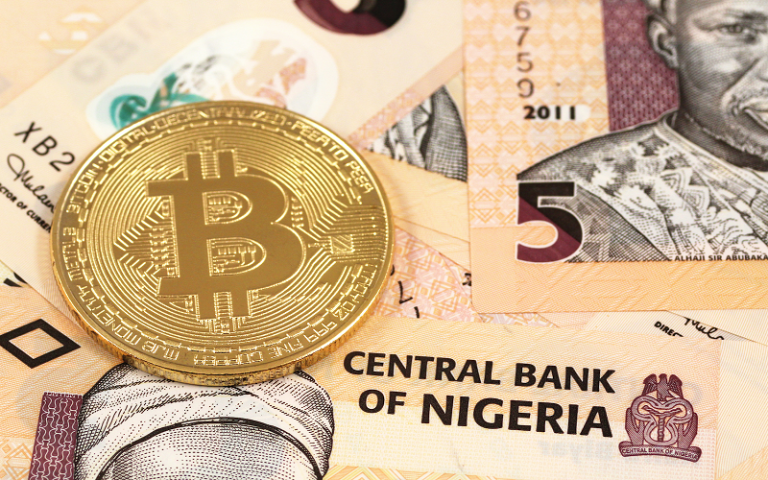
Months after the Central Bank of Nigeria (CBN) ordered regulated financial institutions to cease all transactions in cryptocurrencies due to its volatility and lack of regulation, the Nigeria’s Securities and Exchange Commission (SEC) has come up with an idea that will enable it to regulate the new market.
Nigeria’s SEC Director General Lamido Yuguda said on Thursday it has set up a fintech division to study crypto investments and products in order to come up with regulations, Reuters reports.
“We are looking at this market closely to see how we can bring out regulations that will help investors protect their investment in blockchain,” he told Reuters in a virtual interview in Abuja.
Register for Tekedia Mini-MBA edition 19 (Feb 9 – May 2, 2026): big discounts for early bird.
Tekedia AI in Business Masterclass opens registrations.
Join Tekedia Capital Syndicate and co-invest in great global startups.
Register for Tekedia AI Lab: From Technical Design to Deployment (next edition begins Jan 24 2026).
According to the report, Yuguda did not provide a time frame for issuing regulations but said the SEC will step in with regulations once crypto is allowed within the Nigerian banking system.
The SEC has sought to regulate crypto on the grounds that they qualify as securities transactions. In February, the financial asset regulator said it’s embarking on research and consultations in collaboration with the CBN to develop a regulatory framework for Nigeria’s booming crypto market which was scuttled by CBN’s order.
“There is a lot of investment moving into the cryptocurrency market and the tendency is that it will reduce the amount of investments in the stock market.
“Part of the desire of the SEC even in the future is to provide a regulatory framework that will take care of all these challenges that we have seen internationally and the entire world is grappling with in terms of cryptocurrency and digital assets.
“For us at the SEC and capital market, it is something to look at, the world cannot be moving forward and we will be static, no. It is important for us to review, understand, appreciate and introduce regulations that will guide the movement of the market in this direction,” Timi Agama, Head of Department, Registration, Exchanges, Market Infrastructure and Innovation Department of SEC said then.
Nigeria’s cryptocurrency market has faced relentless opposition from the government after the country’s apex bank alleged the burgeoning market is plummeting the naira, Nigeria’s fiat.
The CBN’s order, which forbids financial institutions in Nigeria from carrying out crypto-related transactions, pushed many crypto traders to Peer to Peer (P2P) platforms, drastically reducing the country’s huge crypto trading volume.
Before the CBN’s order, Nigeria ranked top among the countries using cryptocurrency in the world, having only the United States ahead. The crypto market has since grown above $2 trillion in value as more countries and institutions embrace the digital asset.
Investment opportunities in Nigeria have been greatly stymied by the government’s opposition to cryptocurrency, especially for youths who had found employment in the trade.
Yuguda said SEC has been in talks with the central bank, part of which led to the launch of the country’s digital currency, e-naira.
Now, the commission is seeking to work with fintech firms to boost the marketing of domestic securities to prevent capital flight.
He said the SEC is looking to boost savings through investment schemes, which currently have over 4 trillion naira ($9.7 billion) under management split between public and private fund managers. Yuguda said the regulator has asked private managers to put in place custody arrangements to protect investors.
However, concerns remain if the government, through the CBN, will allow anything related to cryptocurrency to be legally traded in Nigeria like before. The central bank’s development of e-Naira suggests the government wants only digital assets it can control.
The CBN said it made the decision to restrict the use of cryptocurrency to protect the naira, and to stop those funding terrorism via cryptocurrency. The apex bank had last month blocked the accounts of six fintech firms for alleged illegal forex and cryptocurrency transactions that it said undermines the naira.




We run lots of parallel governments here, so it’s hard to know who has the power to get a thing done, more understanding of power law could help…
But again, there is no punishment for wrongdoing or malfeasance here, whatever those in position do, it was done in the nation’s best interest, and you are bound to accept it…
We gathered babies and neophytes to manage a complex country like Nigeria, that’s delusion.
Separate old age and long career from competence, and you will understand why things are the way they are. We truly believe that people can lead because they have lived long enough and have long career and certificates? Not really.